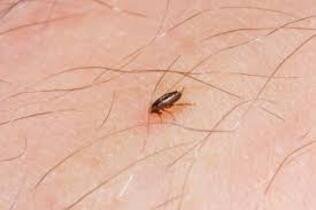Introduction
Pulga is a contagious disease that affects both humans and animals. Understanding its symptoms, causes, and treatment is crucial for prevention and management.
What is Pulga?
Pulga, also known as flea-borne typhus, is an infectious disease caused by bacteria called Rickettsia typhi or Rickettsia felis. These bacteria are transmitted through the bites of infected fleas.
Symptoms of Pulga
The symptoms of pulga can vary widely from person to person but commonly include:
-High fever
-Headaches
-Muscle aches
-Chills
-Rash (especially on the chest, back, or abdomen)
-Fatigue
-Nausea
-Vomiting
Causes of Pulga
Pulga is primarily caused by the bacteria Rickettsia typhi or Rickettsia felis. These bacteria are commonly found in fleas that infest rodents, such as rats and mice. When an infected flea bites a human or animal, it transmits the bacteria into the bloodstream, leading to infection.
Transmission of Pulga
This disease is typically transmitted to humans through the bite of an infected flea. Fleas become infected with Rickettsia bacteria when they feed on the blood of infected animals, primarily rodents. When an infected flea then bites a human or animal host, it can transmit the bacteria, leading to pulga infection.
Diagnosis of pulga
Diagnosing can be challenging due to its nonspecific symptoms, which can resemble those of other common illnesses. However, healthcare providers may use several methods to diagnose, including:
Physical examination: Healthcare providers may examine the patient for symptoms such as fever, rash, and enlarged lymph nodes.
Blood tests: Blood tests can detect the presence of Rickettsia bacteria or antibodies produced by the immune system in response to the infection.
Polymerase chain reaction (PCR) tests: PCR tests can detect the genetic material of the Rickettsia bacteria in blood samples, providing a definitive diagnosis.
Treatment of Pulga
It is typically treated with antibiotics to eliminate the bacterial infection. Commonly prescribed antibiotics for pulga include:
-Doxycycline
-Tetracycline
-Azithromycin
Patients are usually advised to complete the full course of antibiotics prescribed by their healthcare provider to ensure the infection is fully treated.
Prevention of Pulga
Prevention involves controlling flea infestations and avoiding contact with fleas and their hosts. Some preventive measures include:
-Keeping living areas clean and free of rodents, which are common hosts for fleas.
-Using flea control products on pets, such as flea collars, topical treatments, or oral medications.
-Avoiding areas known to be infested with fleas, especially in regions where pulga is endemic.
FAQs:
Q: Can pulga be transmitted from person to person?
A: No, it is not directly transmitted from person to person. It is transmitted through the bites of infected fleas.
Q: Is pulga a life-threatening disease?
A: In most cases, it is a treatable illness, especially with prompt diagnosis and appropriate antibiotic treatment. However, if left untreated, severe cases can lead to complications such as pneumonia or organ failure, which can be life-threatening.
Q: Can pets transmit pulga to humans?
A: Yes, pets can serve as carriers of fleas infected with Rickettsia bacteria and transmit this disease to humans through flea bites. Therefore, it’s essential to regularly use flea control products on pets and keep them free of fleas.
Q: Are there any long-term complications of pulga?
A: While most cases of this disease resolve with appropriate treatment, some individuals may experience lingering symptoms or complications, such as fatigue or joint pain, for several weeks or months after the initial infection.
Conclusion:
In conclusion, understanding the symptoms, causes, and treatment of flea-borne typhus is crucial for preventing its spread and managing the illness effectively. By implementing preventive measures such as controlling flea infestations and avoiding contact with fleas and their hosts, individuals can reduce their risk of infection. Seeking prompt medical care and completing the full course of antibiotics prescribed by healthcare providers are essential steps in treating flea-borne typhus and preventing complications. With awareness and proactive measures, individuals can safeguard their health against this infectious disease.






















Leave a Reply